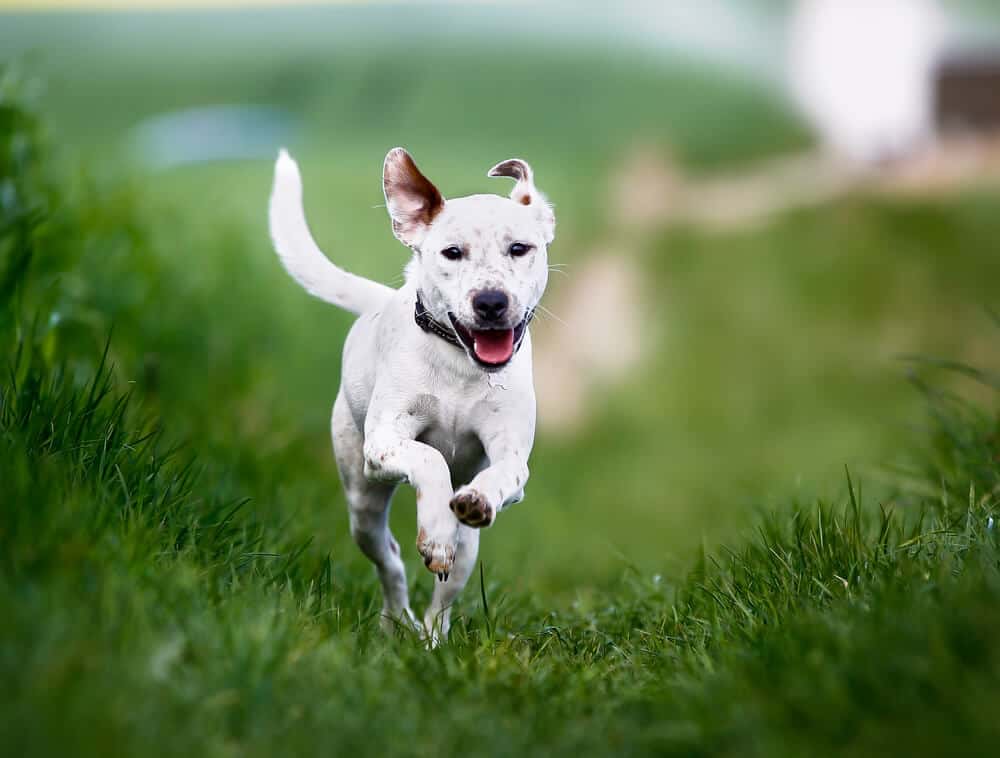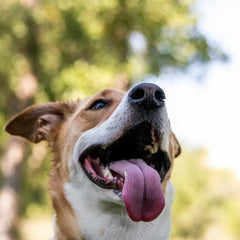Hyperactivity in dogs is a subject that often leaves pet owners scratching their heads. While most of us associate hyperactivity with high energy levels, the underlying reasons can be more complex. This article explores whether a special diet is necessary to manage hyperactivity in dogs and what such a diet might entail.
Understanding Hyperactivity
Firstly, it's important to distinguish between an energetic dog and a genuinely hyperactive one.
What is Hyperactivity?
- Clinical Hyperactivity: A diagnosed condition characterised by extreme restlessness, impulsivity, and a short attention span.
- Perceived Hyperactivity: Often mistaken for clinical hyperactivity, but is usually just high energy.
Table: Hyperactivity vs High Energy
Behaviour Traits |
Hyperactivity |
High Energy |
| Attention Span | Short | Normal |
| Impulse Control | Poor | Moderate to Good |
| Response to Training | Limited | Good |
Role of Diet
Diet can play a significant role in a dog's behaviour, including levels of activity and restlessness.
How Diet Affects Behaviour:
- Blood Sugar Levels: Foods that spike blood sugar can cause bursts of energy.
- Nutrient Imbalance: Lack of certain nutrients can impact a dog's neurological function.
Importance of Balanced Diet:
- Consistent Energy: Slow-release carbohydrates can provide sustained energy.
- Brain Health: Certain nutrients can support cognitive function.
Nutrients to Focus On
If you've determined that your dog is indeed hyperactive, certain nutrients can help manage the condition.
Key Nutrients:
- Complex Carbohydrates: Such as whole grains, for slow energy release.
- Protein: High-quality sources like chicken or fish.
- Omega-3 Fatty Acids: Known to improve brain function.
Table: Nutrient Sources and Benefits
Nutrient |
Source |
Benefits |
| Complex Carbohydrates | Brown rice, quinoa | Slow energy release |
| Protein | Chicken, fish | Essential for muscle development |
| Omega-3 Fatty Acids | Fish oil, flaxseeds | Supports cognitive function |
Avoiding Stimulants
Certain food items act as stimulants and can exacerbate hyperactivity.
Foods to Avoid:
- Sugar: Can cause a rapid increase in energy, followed by a crash.
- Caffeine: Found in chocolate, which is toxic to dogs.
- Artificial Additives: Such as colours and preservatives.
Table: Stimulants to Avoid
Stimulant |
Found in |
Effect on Dogs |
| Sugar | Sweets, some processed foods | Rapid energy spike and crash |
| Caffeine | Chocolate, tea, coffee | Toxic, can lead to restlessness |
| Artificial Additives | Many commercial dog foods | Unknown long-term effects |

Consulting a Behaviourist
While diet plays a role, it's often beneficial to consult a professional behaviourist for a holistic approach.
Why Consult a Behaviourist?
- Expert Assessment: To determine if your dog is truly hyperactive or just high-energy.
- Dietary Recommendations: Tailored advice on dietary changes.
- Training Techniques: To manage behaviour effectively.
FAQs
Q: Can I use medication to control my dog's hyperactivity?
A: Medication is usually a last resort and should only be used under veterinary supervision.
Q: How quickly can I expect to see changes after altering my dog’s diet?
A: It can take several weeks to observe any significant changes in behaviour.
Q: Is exercise a good alternative to manage hyperactivity?
A: Exercise is essential but may not be sufficient to manage clinical hyperactivity.
Conclusion
Hyperactivity in dogs can be a challenging issue to manage. While diet plays a significant role in a dog's overall behaviour, it's crucial to consult a professional for a comprehensive treatment plan. Focusing on specific nutrients while avoiding stimulants can contribute to managing hyperactivity, but it should be part of a holistic approach that includes behavioural training and possibly medical intervention.




